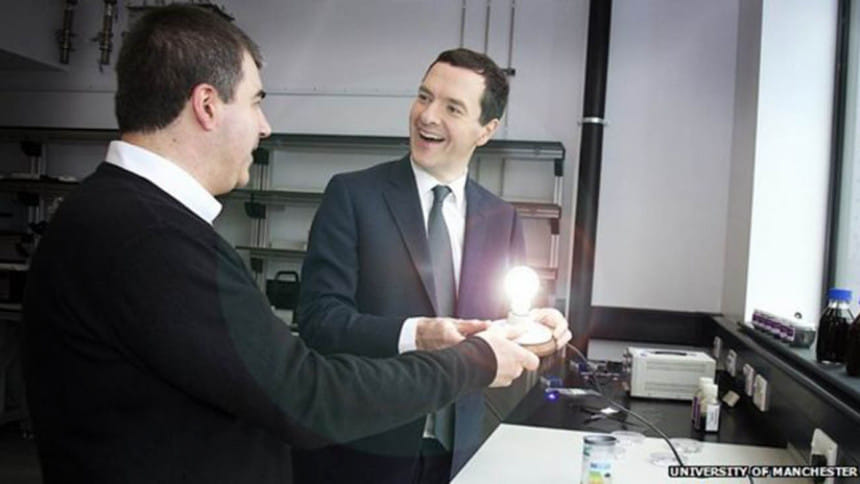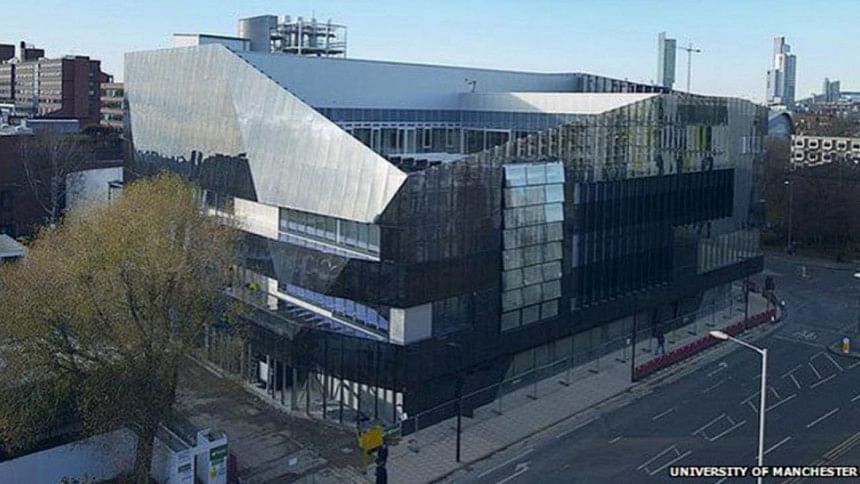Graphene light bulb set for shops

A light bulb made from graphene - said by its UK developers to be the first commercially viable consumer product using the super-strong carbon - is to go on sale later this year.
The dimmable LED bulb with a graphene-coated filament was designed at Manchester university, where the material was discovered in 2004.
It is said to cut energy use by 10 percent and last longer owing to its conductivity.
The National Graphene Institute at the university was opened this month.
The light bulb was developed by a Canadian-financed company called Graphene Lighting - one of whose directors is Prof Colin Bailey, deputy vice chancellor at the University of Manchester.
It is expected to be priced lower than current LED bulbs, which cost about £15 each.
Prof Bailey said: "The graphene light bulb will use less energy. We expect it to last longer. The manufacturing costs are lower and it uses more and more sustainable components."
PLANES AND CARS
The discovery of graphene by Andre Geim and Konstantin Novoselov, two Russian-born scientists at the University of Manchester, earned the pair the Nobel Prize for Physics and knighthoods.
A micro-thin layer of graphene is stronger than steel but can also conduct electricity and heat more effectively, and it has been dubbed a "wonder material" because of its potential uses.

The government has invested £38m in the National Graphene Institute via the Engineering and Physical Sciences Research Council, with an additional £23m provided by the European Regional Development Fund.
Chancellor George Osborne, who opened the site on 20 March, has said he hopes the UK can see off competition from China and South Korea to become a centre of excellence in graphene technology.
More than 35 companies worldwide have already partnered with the university to develop projects.
The race is now on to develop other practical and commercial uses, including lighter but more robust car and aircraft frames and false teeth. The material has already been incorporated into products including tennis rackets and skis.

 For all latest news, follow The Daily Star's Google News channel.
For all latest news, follow The Daily Star's Google News channel. 



Comments